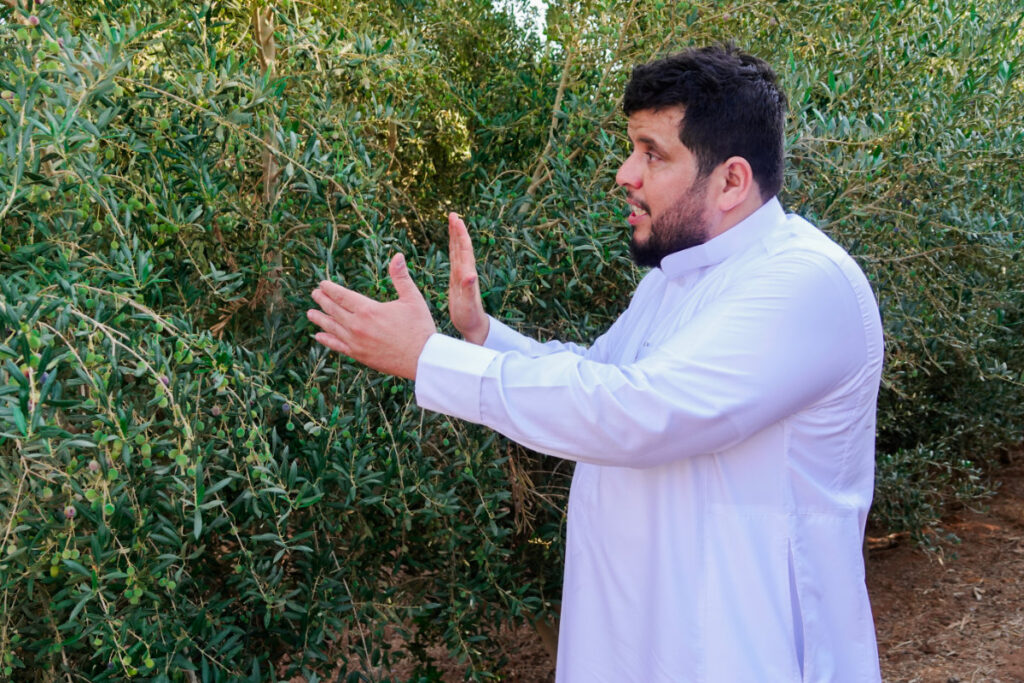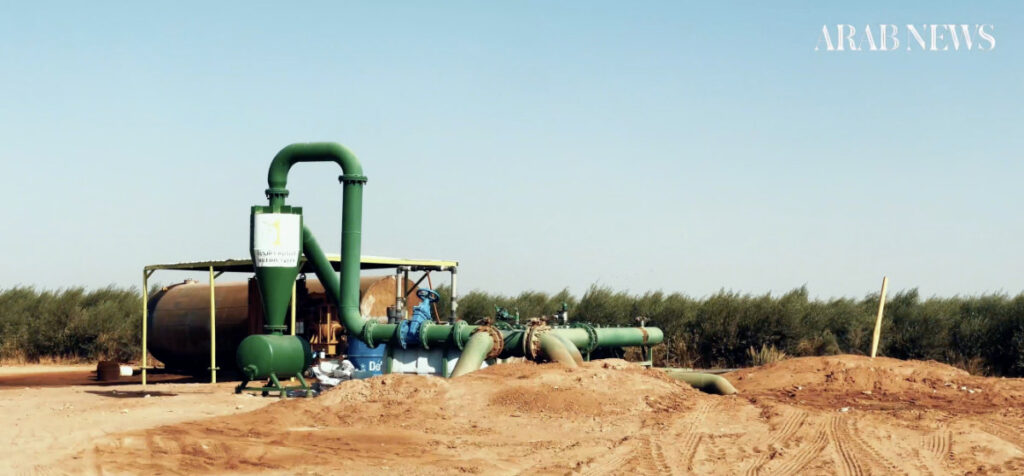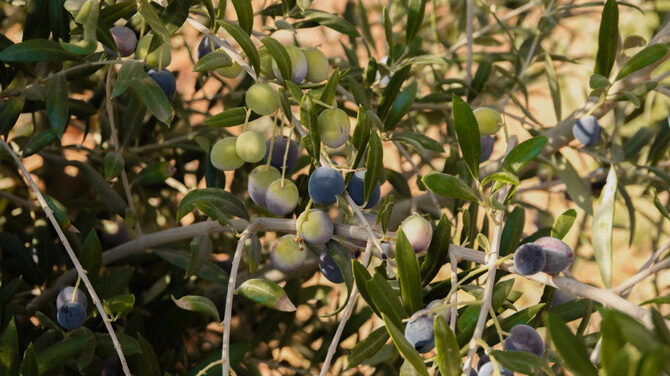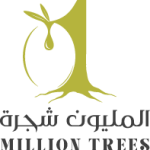Saudi Arabia’s green oil: Ancient meets modern as the ‘smart farmers’ of Jouf reap a rich olive harvest
Arab News visited the “Million Tree Farm” in Jouf, a land of fertile soil and moderate climate ideal for cultivating this popular drupe
JOUF: Olive oil, the green elixir and a staple in Saudi households, is getting a production boost as farmers in the northern Jouf region — the “food basket of the Kingdom” — adopt high-tech methods to get the most out of their traditional olive groves.
Olive trees have their roots in the cradle of civilization. Cultivated even before the invention of written language, distinctive tree varieties spread to Iran, Syria and Palestine, and throughout the Mediterranean basin.
With its fertile soil and moderate climate, the Jouf region in the north of the Kingdom has become Saudi Arabia’s biggest producer of olive oil, and is home to vast orchards holding millions of trees.
Throughout history, the humble olive has been associated with prosperity. But olive oil has always been much more than just a delicious part of the daily diet, and is a valuable and intrinsic part of Arab culture and heritage.
Arab News traveled north and visited the Busita farm, also known as the “Million Tree Farm,” whose owner, Nasser Al-Hamad, shared his story of swapping a career as an Islamic studies teacher in Riyadh for life in the world of agriculture.
Al-Hamad researched and planned his farming project for years before planting 160,000 olive trees imported from Spain through the Agromillora company.
His efforts have borne fruit and he is now regarded as one of the best farmers in the region.
Throughout history, the humble olive has been associated with prosperity. But olive oil has always been much more than just a delicious part of the daily diet, and is a valuable and intrinsic part of Arab culture and heritage.
“I grew up between farms and in a family full of farmers, so I was already familiar with planting methods for many crops,” he told Arab News.
Al-Hamad decided to grow Spanish olive trees in high-density groves, a more economical and productive model that also delivered high-quality crops and flavor.
“When my family started their farming business in Jouf city, the quality of olive oil caught my attention. We did not depend on the Spanish olive oil for daily use, and it was only used for medical prescriptions. However, I found out that it has a nuttier and richer fruity flavor and a sweeter taste than other types,” he said.
“When you eat it in the early morning, it gives the body a kick-start for the day.”
The journey that led to the Million Tree Farm began with a single step.

“I started with a small orchard of the available olive trees, then I started my research, including visiting international farms and agricultural experts all over Europe,” Al-Hamad said.
In 2018, 160,000 trees, all of the Arbequina variety, were planted as the first stage of the “Million Tree” project.
“The trees are watered through pressure-regulated irrigation networks for four years, resulting in significant growth, heavy branches to support the fruit and excellent productivity,” he said.
“I have been to China, different countries in Europe, and I have met some of the biggest dealers in the field. It turned out that Busita is the best, in terms of quality, production and cost, thanks to different factors, such as the weather.”
INNUMBERS
160,000 – the number of trees planted in the first stage of the “Million Tree” project
10 kg – every 10 kg of olives yields one liter of high-quality olive oil
He added: “In other countries, rainfall in the harvest season can cause crop damage or increase in moisture level for the fruits, but not here.”
Al-Hamad said that every 10 kg of olives yields one liter of high-quality olive oil.
“This whole orchard is managed by one irrigation pump, and requires only one worker due to the use of modern technology,” he said.

Al-Hamad’s success has prompted him to launch another project, with plans to plant 700,000 trees in the next six months. Three types of Spanish olive tree — Arbequina, or “Queen of Arabia”; Arbosana, which translates as “Arabs of Sinai”; and Olea europaea, the European olive — will be used in the planting.
With a long-term goal in mind, the “smart farmer” is focusing on ways to conserve water, lower costs, and transform the way olive oil is produced in the Kingdom in line with modern business principles.
“As I made a career in the farming industry, I found out that the farming process is easier now. My trip to Spain taught me that farming can also adopt technology that is more feasible than standard methods used in other countries.”
Al-Hamad’s methods result in lower costs, reduced water consumption and minimal use of labor, but the result is a consistent high-quality olive oil.
Olive trees thrive on little water, unlike palm trees, which require intensive watering.




